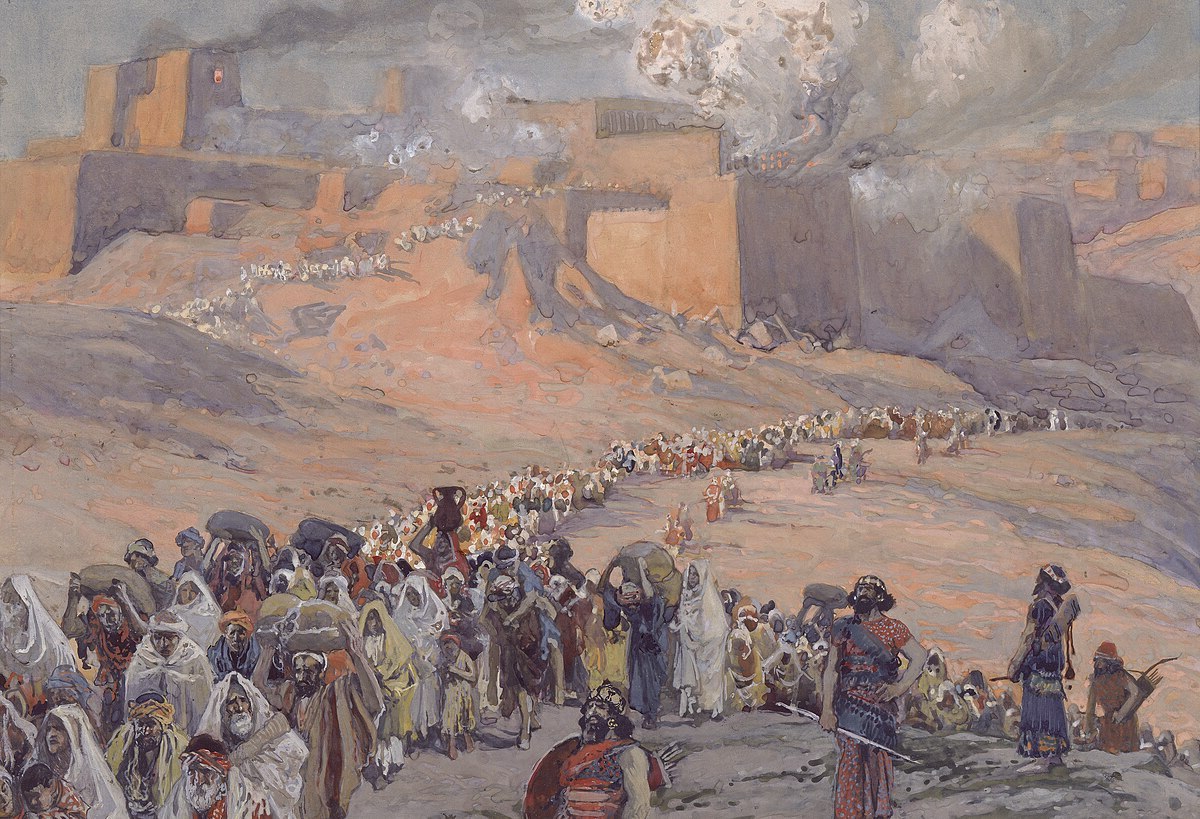
The Jewish Babylonian War is a significant yet often overlooked chapter in ancient history. This conflict, which took place in the 6th century BCE, saw the Jewish people clashing with the powerful Babylonian Empire. Why did this war happen? The primary reasons were political upheaval, territorial ambitions, and religious tensions. The Babylonians, led by King Nebuchadnezzar II, sought to expand their empire, while the Jewish kingdom of Judah resisted subjugation. This war led to the destruction of Jerusalem and the First Temple, marking a pivotal moment in Jewish history. What were the consequences? The aftermath included the Babylonian exile, where many Jews were forcibly relocated, profoundly impacting their culture and religious practices. Understanding this war helps us grasp the resilience and enduring spirit of the Jewish people.
Key Takeaways:
- The Jewish Babylonian War, also known as the Babylonian Exile, was a pivotal event that led to the destruction of the First Temple and the exile of many Jews to Babylon, shaping Jewish history, culture, and religion.
- The legacy of the Jewish Babylonian War continues to influence Judaism, with lasting impacts on cultural practices, religious beliefs, and the enduring power of cultural identity.
Jewish Babylonian War: A Historical Overview
The Jewish Babylonian War, also known as the Babylonian Exile, was a significant event in Jewish history. This conflict led to the destruction of the First Temple and the exile of many Jews to Babylon. Here are some fascinating facts about this pivotal period.
The Beginning of the Conflict
The roots of the Jewish Babylonian War can be traced back to political tensions and power struggles.
- King Nebuchadnezzar II: The Babylonian king who led the conquest of Judah. His reign marked the height of Babylonian power.
- Jehoiakim's Rebellion: The Judean king, Jehoiakim, rebelled against Babylonian rule, sparking the conflict.
- Siege of Jerusalem: Nebuchadnezzar laid siege to Jerusalem in 597 BCE, leading to its eventual fall.
The Fall of Jerusalem
The fall of Jerusalem was a catastrophic event for the Jewish people, leading to significant changes in their society and religion.
- Destruction of the First Temple: The Babylonians destroyed Solomon's Temple, a central place of worship for the Jews.
- Exile to Babylon: Many Jews were taken captive and exiled to Babylon, marking the beginning of the Babylonian Exile.
- Zedekiah's Fate: The last king of Judah, Zedekiah, was captured, blinded, and taken to Babylon.
Life in Babylon
Life in Babylon was challenging for the exiled Jews, but it also led to significant cultural and religious developments.
- Jewish Community in Babylon: The exiled Jews established a thriving community in Babylon.
- Babylonian Influence: Babylonian culture and religion influenced Jewish practices and beliefs.
- Prophet Ezekiel: Ezekiel, one of the major prophets, lived and preached in Babylon during the exile.
Return to Judah
The return to Judah marked a new chapter in Jewish history, with the rebuilding of the Temple and the reestablishment of Jewish society.
- Cyrus the Great: The Persian king who conquered Babylon and allowed the Jews to return to Judah.
- Rebuilding the Temple: The Second Temple was built in Jerusalem, becoming the new center of Jewish worship.
- Ezra and Nehemiah: These leaders played crucial roles in the restoration of Jewish society and religion in Judah.
Lasting Impact
The Jewish Babylonian War had a lasting impact on Jewish history, culture, and religion.
- Development of Synagogues: With the Temple destroyed, synagogues became important centers of worship and community.
- Hebrew Bible: Much of the Hebrew Bible was compiled and edited during and after the Babylonian Exile.
- Jewish Identity: The exile and return helped shape Jewish identity and religious practices.
Key Figures
Several key figures played important roles during the Jewish Babylonian War and its aftermath.
- Jeremiah: The prophet who warned of the impending destruction and urged the people to repent.
- Daniel: A Jewish exile who rose to prominence in the Babylonian and Persian courts.
- Cyrus the Great: The Persian king who allowed the Jews to return to Judah and rebuild the Temple.
Cultural and Religious Changes
The Jewish Babylonian War led to significant cultural and religious changes that continue to influence Judaism today.
- Shift to Monotheism: The exile reinforced the Jewish belief in one God, Yahweh.
- Development of Jewish Law: The exile period saw the development and codification of Jewish law and traditions.
- Influence on Jewish Literature: The experiences of the exile influenced Jewish literature, including the Psalms and Lamentations.
Archaeological Evidence
Archaeological discoveries have provided valuable insights into the Jewish Babylonian War and its aftermath.
- Babylonian Chronicles: These ancient records provide detailed accounts of the Babylonian conquest of Judah.
- Lachish Letters: These letters, found in the ruins of Lachish, offer a glimpse into the final days of Judah before the Babylonian conquest.
- Artifacts from Babylon: Various artifacts from Babylon provide evidence of the Jewish presence and influence in the city.
Modern Interpretations
Modern scholars continue to study and interpret the Jewish Babylonian War, offering new insights and perspectives.
- Historical Analysis: Historians analyze ancient texts and archaeological evidence to understand the causes and consequences of the war.
- Religious Studies: Scholars study the impact of the exile on Jewish religion and theology.
- Cultural Impact: Researchers explore how the exile influenced Jewish culture, literature, and identity.
Lessons from History
The Jewish Babylonian War offers valuable lessons about resilience, faith, and the enduring power of cultural identity.
- Resilience in Exile: The Jewish people maintained their identity and faith despite the challenges of exile.
- Cultural Adaptation: The exile period shows how cultures can adapt and evolve in response to new circumstances.
- Enduring Faith: The Jewish faith and traditions endured and even strengthened during the exile.
The Legacy of the Jewish Babylonian War
The legacy of the Jewish Babylonian War continues to be felt in Jewish history, culture, and religion.
- Influence on Judaism: The exile period had a profound influence on the development of Judaism.
- Historical Memory: The events of the Jewish Babylonian War are remembered and commemorated in Jewish tradition.
- Cultural Heritage: The legacy of the exile is reflected in Jewish literature, art, and cultural practices.
- Lessons for Today: The story of the Jewish Babylonian War offers lessons about resilience, faith, and the power of cultural identity.
Final Glimpse at Jewish Babylonian War
The Jewish Babylonian War left a lasting impact on history. This conflict, marked by the siege of Jerusalem and the destruction of the First Temple, reshaped the Jewish community. The Babylonian exile forced Jews to adapt, preserving their identity through religious practices and community bonds. Despite the hardships, this period led to significant developments in Jewish thought and literature, including parts of the Hebrew Bible.
Understanding these events helps us appreciate the resilience and adaptability of the Jewish people. The war's legacy continues to influence Jewish culture and religious practices today. By learning about this pivotal time, we gain insight into the enduring spirit of a community that has faced and overcome immense challenges. The Jewish Babylonian War is a testament to the strength and perseverance of the Jewish people throughout history.
Frequently Asked Questions
Was this page helpful?
Our commitment to delivering trustworthy and engaging content is at the heart of what we do. Each fact on our site is contributed by real users like you, bringing a wealth of diverse insights and information. To ensure the highest standards of accuracy and reliability, our dedicated editors meticulously review each submission. This process guarantees that the facts we share are not only fascinating but also credible. Trust in our commitment to quality and authenticity as you explore and learn with us.


